It is imperative to establish efficient Durable Medical Equipment business policies to guarantee compliance, optimize operations, and deliver high-quality patient care. These policies outline the standards and procedures that must be followed in different situations, acting as a guide for staff members. This is a step-by-step approach to assist you in developing strong policies for your DME company.
Understand Regulatory Requirements
To formulate effective business policies, one must initially comprehend the regulatory environment. DME businesses are subject to federal, state, and municipal laws, such as those pertaining to Medicare and Medicaid, the Health Insurance Portability and Accountability Act (HIPAA), and FDA regulations.
- Research and Documentation: Investigate the laws that are pertinent to your company first. Maintain thorough records of these specifications so that policymakers can refer to them.
- Consult Experts: Seek advice from compliance officials or legal specialists as needed to make sure you comprehend all of the rules and how they apply to your company.
Define Your Business Goals and Objectives
You may better customize your policies to suit these goals by clearly identifying your business’s goals and objectives. Consider your short- and long-term objectives, such as raising patient satisfaction, boosting productivity, or diversifying your product offering.
- Align Policies with Goals: Make sure that every policy you create is in line with your main business goals. For example, establish rules that prioritize offering excellent customer service and patient care if patient happiness is a top concern.
Identify Key Areas for Policy Development
Determine the main areas that require a policy. Typical locations consist of:
- Compliance: Making sure that rules and guidelines are followed.
- Operations: Simplifying steps and protocols.
- Quality Assurance: Upholding strict guidelines for goods and services.
- Employee Conduct: Establishing standards for conduct and output from employees.
- Data Security: Safeguarding patient data and making sure HIPAA regulations are followed.
Draft Clear and Concise Policies
Writing rules requires careful attention to detail and clarity. They should be simple to comprehend and devoid of technical terms to guarantee that all personnel can appropriately follow policies.
- Use Simple Language: Steer clear of technical or complicated legal jargon that might mislead staff members.
- Be Specific: Provide precise directions and recommendations to ensure that there are no questions left unanswered.
Implement a Review and Approval Process
Establishing a review and approval procedure is crucial before approving any policy.
- Internal Review: Get department heads and important stakeholders to evaluate the policies to make sure they are thorough and functional.
- Legal Review: Consult a legal professional if needed to make sure the rules adhere to all applicable laws and regulations.
- Approval: Get official consent from the board of directors or top management prior to putting any policy into effect.
Communicate and Train
After policies are created and authorized, make sure all staff members are aware of them. To make sure that everyone is aware of and follows the new regulations, training is necessary.
- Employee Training: Hold training sessions to inform staff members of the new policies and their obligations.
- Regular Updates: Offer regular updates and refresher sessions to keep staff members informed of any changes or new policies.
Creating durable medical equipment business policies is essential to maintaining compliance, improving efficiency, and offering high-quality treatment. You may establish strong policies that promote the success of your corporation by comprehending regulatory requirements, coordinating policies with organizational objectives, and incorporating stakeholders. In a changing regulatory environment, regular training, oversight, and updates will guarantee that these rules stay applicable and efficient.
